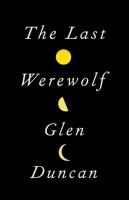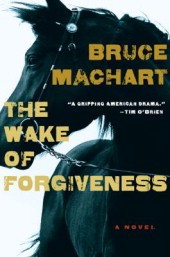 The Last Werewolf by Glen Duncan
The Last Werewolf by Glen Duncan
Review by Emma
It’s clear how self-aware Glen Duncan was of the tradition he attempts to navigate in The Last Werewolf, focused on the final months of the moribund race of lycanthropes. He negotiates a genre of horror we’ve become accustomed to, a vogue of monstrosity that’s returned from the depths of our imaginations after several decades of hibernation in which werewolves were merely fodder for satire, a campy terror that no longer haunted the nightmares of our subconscious. Not unlike Anne Rice’s Vampire series, Duncan invites the readership to reexamine lycanthropes, both to understand aspects of their humanity—or rather the crisis of being physically ripped from it each full moon—and view them within a narrative that’s persisted in folklore for hundreds of years. Jacob Marlowe’s narration is possessed of a certain eloquence, his speech fragmented with astute literary allusions, so off-handedly quipped that we come to understand him as a man very much in love with words and the importance of recognizing those storytellers that matter, just as Duncan does not presume to ignore the multitude of literary renderings the werewolf has undergone. Marlowe’s tendency to wax poetic is construed as his medium to wrestle with notions of morality while so Cursed. Duncan parses lyrical sentences with oblique references to Blake or Tennyson to give the reader a sense of the vital importance words have for Marlowe, a meta-commentary on his own risk to reimagine lycanthropy. However, this eloquence breaks down further into the narrative as the tempo increases. Continue reading

















